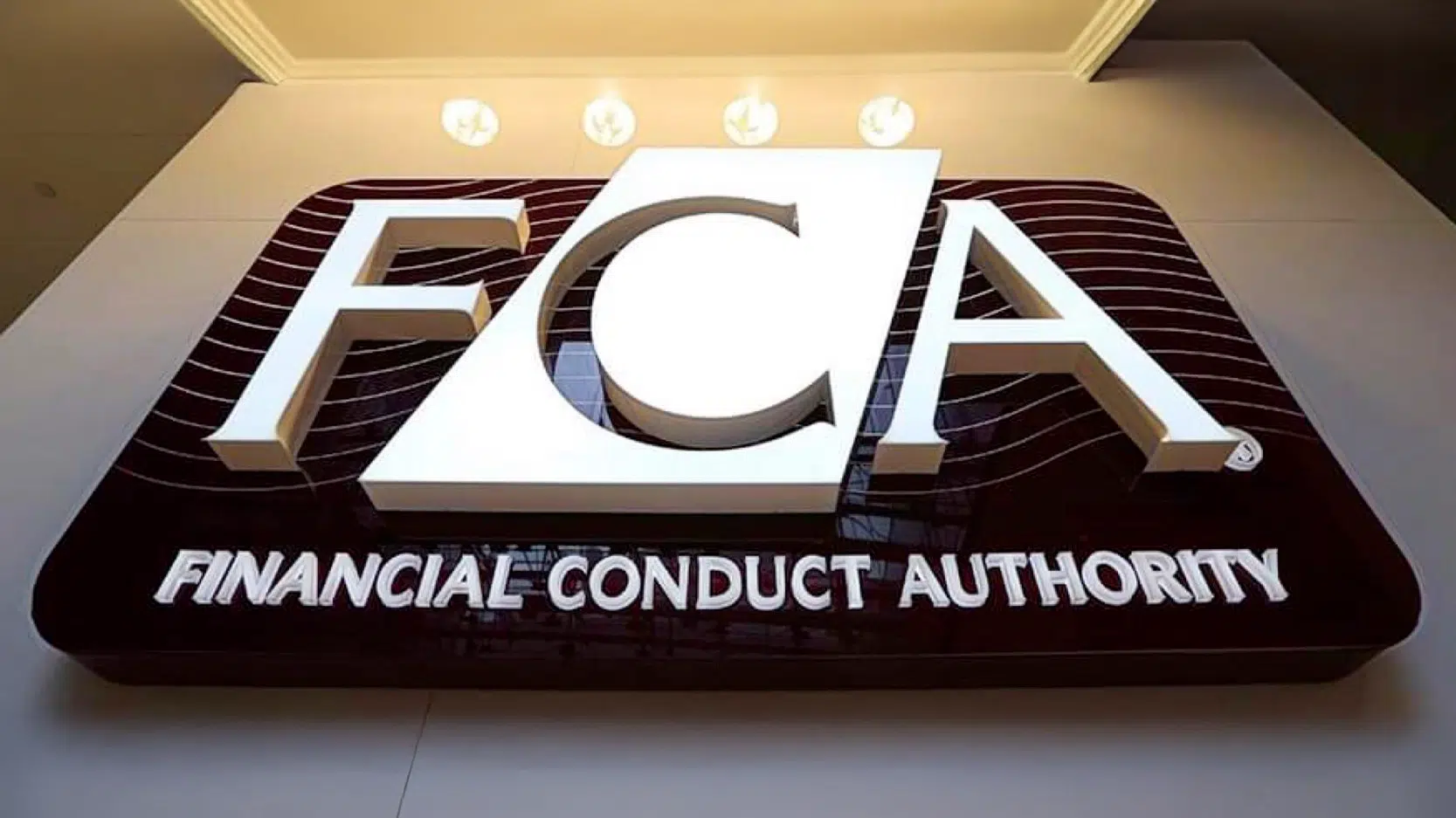FCA Regulation Explained: Broker Verification & FSCS Guide
What Is FCA Regulation? A Complete Guide to FCA Lookup, Licensing and Investor Protection

What Is the FCA? Why Is It the Most Important Safeguard for Traders?
For anyone entering the forex or CFD market, the first lesson is not learning how to read charts but understanding how to identify whether a trading platform is safe. Among all regulatory bodies, FCA regulation is widely recognised as the gold standard in global finance. The FCA, short for the Financial Conduct Authority, is an independent organisation responsible for overseeing the financial services industry in the United Kingdom. In simple terms, understanding what the FCA is and learning how to perform an FCA lookup is equivalent to giving your investment funds a powerful layer of protection. This institution exists to ensure fairness, integrity and efficiency in financial markets and to protect consumers from unethical operators.
Many new traders may be drawn to various promotional offers or extremely high leverage while overlooking the importance of regulatory credibility behind the platform. A broker that is unregulated or holds only an offshore island licence offers no protection for your funds. If a dispute arises, you will often have nowhere to seek help. Therefore, before committing real money, taking the time to understand top-tier regulators such as the FCA will be one of the wisest investment decisions you can make. 🛡️
Core Responsibilities of FCA Regulation
The FCA’s regulatory authority is not just theoretical; its responsibilities cover the entire financial market. Banks, insurance companies and forex brokers must all comply with its strict standards. Understanding its core duties helps explain why brokers holding an FCA licence are far more trustworthy.
- 🛡️ Protecting consumers: This is the FCA’s top priority. It ensures that financial institutions treat clients fairly, provide clear and understandable information and maintain a proper complaint-handling mechanism. The FCA requires brokers to fully segregate client funds from company operating capital to prevent client assets from being misused if the company performs poorly.
- 📈 Maintaining market integrity: The FCA combats financial crimes such as insider trading and market manipulation to ensure fairness in financial markets. All regulated firms must follow strict reporting and audit standards to maintain a high level of operational transparency.
- 💰 Promoting healthy competition: By establishing reasonable market rules, the FCA encourages innovation and fair competition within the financial services industry, ultimately benefiting consumers (investors) by providing more diversified and higher-quality financial products and services.
In summary, the FCA functions like both the police and the judge of the financial market. Its presence ensures that all participants can trade within a fair and transparent environment, which is an essential layer of protection for retail investors.
How the FCA Protects Your Funds Through the FSCS Scheme
Beyond the responsibilities mentioned above, one of the most reassuring mechanisms for investors under FCA regulation is the “Financial Services Compensation Scheme” (FSCS). This scheme is an independent, non-profit organisation separate from both the government and the financial industry, designed to provide a final layer of protection for clients who cannot retrieve their funds when an authorised financial services firm collapses.
If your forex broker unfortunately goes bankrupt or ceases operations, and the firm is a member of the FSCS (all FCA-regulated retail brokers must be), the FSCS will step in. According to the latest rules:
- Compensation limit: For investment-related claims, each client can receive up to £85,000 per firm.
- Trigger conditions: The firm must be FCA-authorised, must have stopped trading and must have insufficient assets to repay client claims.
- Eligible claimants: Covers individual investors and certain small businesses.
This means that even in the worst-case scenario, your losses can be compensated up to £85,000. Such protection is something most offshore regulators cannot provide, making it one of the most tangible advantages of choosing an FCA-regulated broker. This compensation scheme acts like a “mandatory insurance” for your investments, no one hopes to use it, but its very existence provides tremendous peace of mind.
How to Perform an FCA Licence Check to Verify Whether a Broker Is Genuine
The market is flooded with many “shadow brokers” or “clone firms” claiming to be regulated by the FCA. Learning to verify this yourself is an essential skill for protecting your own interests. The following are the detailed steps for checking a broker’s FCA licence. The process is very simple:
- Step 1: Go to the official FCA register website
First, open your browser and go directly to the FCA’s official Financial Services Register website. Be sure to confirm the official URL to avoid entering a phishing site. Official lookup page link: FCA Financial Services Register - Step 2: Enter the broker’s name or licence number
On the search page, type the English name of the broker you want to check or the FCA registration number (FRN – Firm Reference Number) it claims to hold. Using the FRN will be more accurate than using the company name, as company names may have similar spellings. - Step 3: Verify key information
Once you have the search results, carefully check the following key points:- Company status (Status): It must show “Authorised” or “EEA Authorised”. If it shows “No longer authorised” or “Appointed representative”, you need to be especially cautious.
- Contact details (Contact Details): Carefully compare the phone number, address and official website shown on the register with those on the broker’s website you are using. Clone firms often copy the details of a genuine company but reveal discrepancies in their contact information.
- Permissions (Permissions): Confirm whether the firm is authorised to provide “Rolling spot forex contract” and other services for retail clients. Some firms may only be authorised to serve institutional clients rather than retail traders.
- Step 4: Watch out for clone firm warnings
On the results page, the FCA often displays warnings about “clone firms”. If you see a red warning indicating that an unauthorized company is impersonating the regulated firm, you should immediately stop all interaction with that platform.
By completing these four verification steps, you can filter out 99% of fake platforms. The process takes only a few minutes but is absolutely worthwhile, as it concerns the safety of every dollar you invest. When choosing a platform, you may refer to professional review articles such as forex trading platform comparison and recommendations, which usually compile regulatory information for you. However, it is still strongly recommended that you perform the check yourself for complete peace of mind.
Advantages and Disadvantages of Brokers Under FCA Regulation
Choosing a broker strictly regulated by the FCA is undoubtedly the safest choice, but it is not without imperfections. Understanding both sides of its characteristics will help you make a more comprehensive judgment.
|
Pros 👍 |
Cons 👎 |
| Extremely high fund security: Client funds are segregated and protected by the FSCS compensation scheme of up to £85,000. | Leverage limits are stricter: To protect retail clients, the FCA caps leverage on major currency pairs at a maximum of 30:1, far lower than the 500:1 or even 1000:1 offered by some offshore brokers. |
| Strict negative balance protection: Ensures that client losses cannot exceed their account balance, preventing traders from going into debt. | The account opening process is relatively cumbersome: Requires more detailed identity verification (KYC) and proof of address documents, and the review process may take longer. |
| High operational transparency: Brokers must regularly submit financial reports to the FCA, and all activities are strictly monitored. | Trading bonus promotions are restricted: The FCA prohibits using bonuses or other inducements to attract clients to open accounts, so promotional offers are limited. |
| A clear complaint and dispute resolution mechanism: If a dispute arises with a broker, you may file a complaint with the independent Financial Ombudsman Service (FOS). | Trading conditions may be less flexible: Pricing for spreads and commissions may be less competitive compared with platforms operating under looser regulatory environments. |
For most traders who prioritize stability and safety, the advantages of FCA regulation far outweigh its drawbacks. Although lower leverage reduces the possibility of amplifying gains with small capital, it fundamentally lowers the risk of rapid account blowouts, making it more suitable for long-term trading career planning.
Comparison Between the FCA and Other International Financial Regulators
Aside from the FCA, there are many well-known financial regulatory authorities around the world, such as ASIC in Australia and CySEC in Cyprus. What are the differences between them? Understanding these distinctions can help you choose among brokers in different regions.
| Regulatory authority | Country/Region |
Key characteristics |
Fund protection |
| FCA (Financial Conduct Authority) | 🇬🇧 United Kingdom | One of the world’s strictest regulatory frameworks, with very high requirements for leverage, marketing, and client protection. | FSCS provides compensation of up to £85,000. |
| ASIC (Australian Securities and Investments Commission) | 🇦🇺 Australia | Regulatory standards are also very high and are considered A-level supervision on par with the FCA. In recent years, leverage restrictions have also tightened. | There is currently no mandatory official compensation scheme. |
| CySEC (Cyprus Securities and Exchange Commission) | 🇨🇾 Cyprus | An EU member state that follows the MiFID II directive. It serves as a gateway for many brokers entering the European market, and regulatory standards have significantly improved in recent years. | ICF provides compensation of up to €20,000. |
| VFSC / FSC / FSA and more | 🇻🇺 Vanuatu / 🇧🇿 Belize / 🇸🇨 Seychelles | Typical offshore regulation with low application thresholds and weak supervisory, offering almost no substantive client protection measures. | Usually no fund compensation scheme. |
From the table above, it is clear that the FCA offers the strongest level of fund protection. Although ASIC’s regulatory strength is undeniable, the absence of an official compensation fund makes its safety slightly inferior. CySEC, despite operating under the EU framework, has a relatively low compensation cap. As for offshore regulation, it should essentially be regarded as “unregulated”, and platforms holding only these licenses should be avoided as much as possible.
Conclusion
In the complex and ever-changing financial markets, choosing a trading platform regulated by a top-tier authority like the FCA is the first and most crucial step toward protecting your assets and achieving stable investment outcomes. FCA regulation represents more than just compliance and legality. Its deeper value lies in establishing a comprehensive protection framework for investors, including fund segregation, negative balance protection, and the final safeguard of a financial compensation scheme. These layers of protection allow traders to focus on their strategies rather than worry about platform credibility. The next time you consider opening a new trading account, be sure to prioritize “FCA regulation” as your top selection criterion and personally complete the FCA verification process.
Frequently Asked Questions (FAQ) About FCA Regulation
Q: Is the FCA’s Financial Services Compensation Scheme (FSCS) free?
A: Yes. For individual investors, the protection provided by the FSCS is completely free. The program is funded by fees collected from financial firms regulated by the FCA. You do not need to pay any insurance premium; as long as your broker is a member of the scheme, you are automatically protected.
Q: Are all brokers that provide services in the United Kingdom regulated by the FCA?
A: Not necessarily. Some companies may only have an office in the UK, while their actual operations and regulatory jurisdiction are based in other countries. Some are even “clone firms”, illegally using the name of legitimate companies. Therefore, the key is not whether the company is located in the UK, it lies in whether the entity is actually listed in the FCA’s official register and authorized to provide services to retail clients.
Q: If my broker holds multiple regulatory licenses (such as FCA and VFSC), which regulation protects me?
A: This depends on which legal entity you signed your client agreement with when opening your account. Many large brokers assign clients to different regulated entities based on their location. For example, European clients may be placed under FCA or CySEC supervision, while Asian clients may be directed to offshore entities such as Vanuatu (VFSC). Be sure to read the terms carefully during account opening and confirm that your account is explicitly opened under FCA regulation in order to receive protections such as FSCS coverage.
Q: Will the FCA’s leverage limit (30:1) affect profitability?
A: Lower leverage does reduce the potential return per trade because you must commit more margin to open a position of the same size. However, it also greatly reduces risk. High leverage is a double-edged sword: it can magnify profits but can just as easily accelerate losses, and it is one of the main reasons beginners lose money quickly. The FCA’s leverage limits are designed to protect retail investors and encourage more prudent risk management. In the long run, this helps improve traders’ survival rate in the market.
Related Articles
-
In the highly competitive and volatile forex market, scams are rampant, causing significant losses for many investors. Many unlicensed brokers often lure investors with false promises or opaque trading terms, but in reality, they may be involved in fraudulent activities, eventually absconding with the funds and making it difficult for...2025 年 10 月 11 日
-
The forex market is fraught with hidden risks. The Cashback Island security team, through its intelligent monitoring system, has recently discovered that 63 trading platforms have serious qualification issues. These platforms primarily attract investors by fabricating regulatory credentials (commonly imitating agencies like ASIC/FCA/CySEC). We are now publishing a detailed list...2025 年 10 月 11 日
-
The Hong Kong Securities and Futures Commission (SFC) has recently published a list of unlicensed companies and suspicious websites. Here is an overview of the warnings by category: Suspicious Virtual Asset Trading Platforms Name: Linkbex Website: hxxps://fxlinkbex[.]com Remarks: The entity operates on the aforementioned website and is suspected of engaging...2025 年 10 月 11 日












